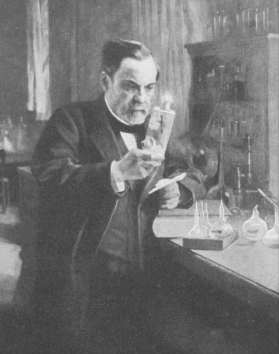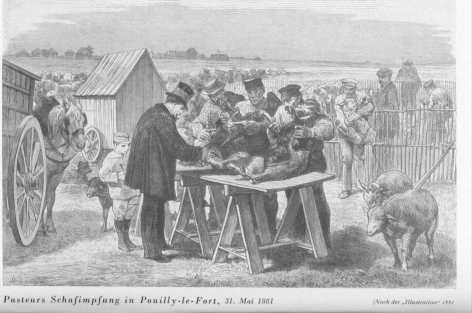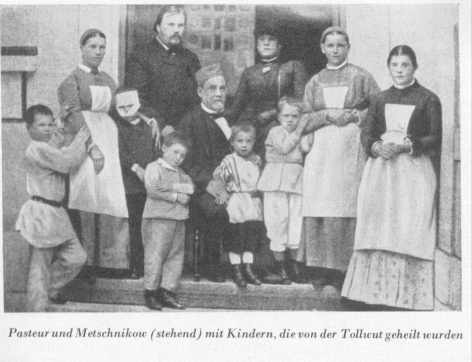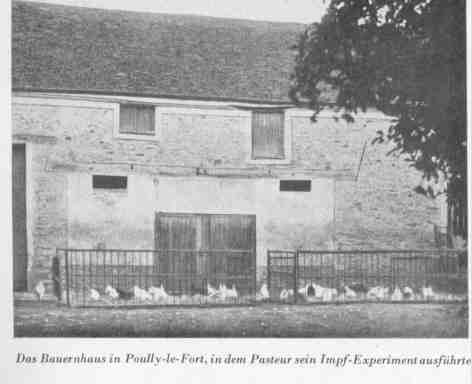Louis Pasteur
(1822-1895)
Content :
1. The Chemist with the Microscope
The Chemist with the Microscope
![]()
"I beseech you to take interest in these sacred domains, so
expressively called laboratories. Ask that there be more and that they be adorned for
these are the temples of the future, wealth and well-being. It is there that humanity will
grow, strengthen and improve.
Here, humanity will learn to read progress and individual harmony in the works of nature,
while humanity´s own works are all too often those of barbarism, fanaticism and
destruction." - L.P.
![]()

From a painting by A. Edelfeld 1889
Pasteur, born in the french Jura, in the year 1822, was a leading chemist
of his time. His discoveries of the influence of bacteria and germs on human health led to
many important changes in medicine . His experiments helped to understand the process of
fermentation of wine and beer by tiny animals, the so called "germs". He
suggested to heat wine before botteling, to kill those germs. This method is used today
for foods like milk, yoghurt, cheese etc. It is called "pasteurization" and make
it possible to produce, preserve and transport these products without their undergoing
deterioration.
He created vaccines against rabies and other infections which were responsible for the
death of many people at that time.
Pasteur also was the founder of a new disciplin in science, the stereochemistry. He
formulated a fundamental law : asymmetry differentiates the organic worl from the mineral
world.
Pasteurs work represents the revolution of scientific methodology.
![]()

![]()

![]()

Selbstversuche des Ehrenvereins "Pasteur-Club"
Auszüge aus Roche Magazin 44, Beitrag von H. Cerutti
Versuche am Menschen standen bei der Entwicklung von Impfstoffen schon
immer im Zentrum der experimentellen Abklärung. Wie sonst könnte man bei Stoffen, die
spezifisch auf das menschliche Immunsystem zugeschnitten sind, Verträglichkeit und
Wirksamkeit prüfen?
Aus ethischen Gründen machten die Forscher die ersten Tests meist am eigenen Leib. So
auch die Forscher der Gruppe um Pasteur bei den Versuchen zur Entwicklung eines
Impfstoffes gegen Tollwut. Pasteur soll bereits den Ärmel für einen Selbstversuch mit er
Vakzine zurückgerollt haben. Aus nicht mehr genau zu eruierenden Gründen wurden drei
andere Forscher aus Pasteurs Gruppe zu Versuchskaninchen. Erste Erfolge des Impfstoffes
machten weltweit Furore. Und die Schüler Pasteurs wetteiferten in der Entwicklung
weiterer Vakzine. Für Forscher, die Impfstoffe im Selbstversuch prüften, entstand der
Ehrenverein "Pasteur Club" - obschon Pasteur nie einen Selbstversuch unternommen
hatte.
19.9.96/27.12.98 Kurt Paulus